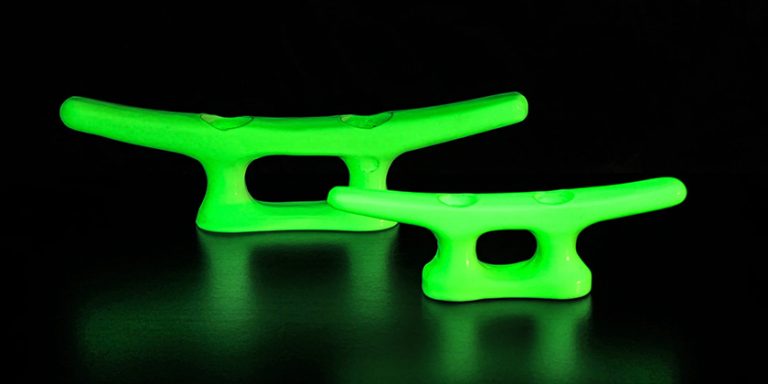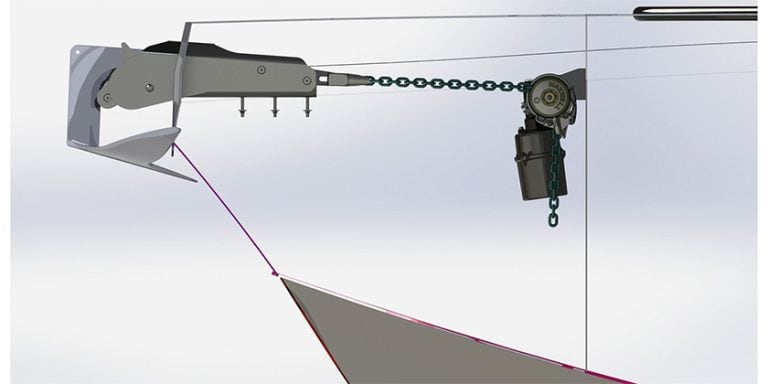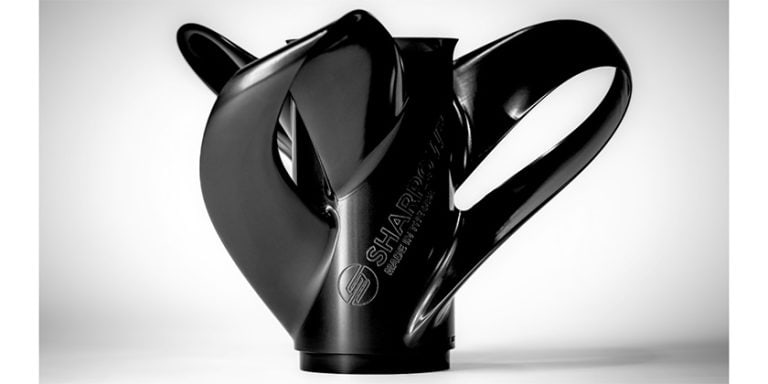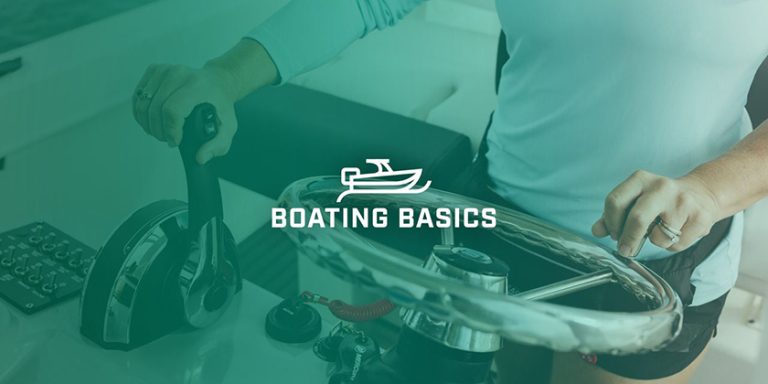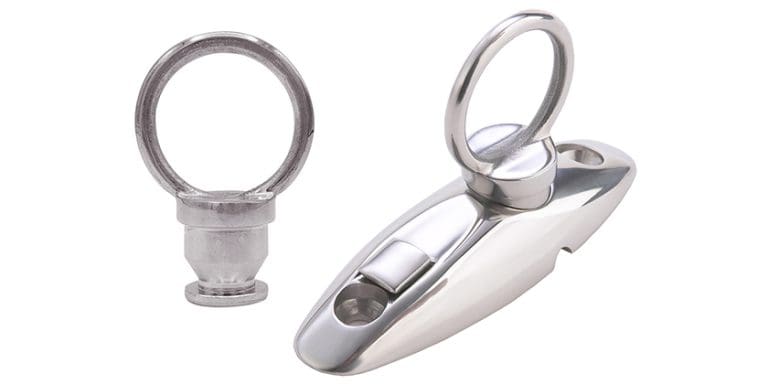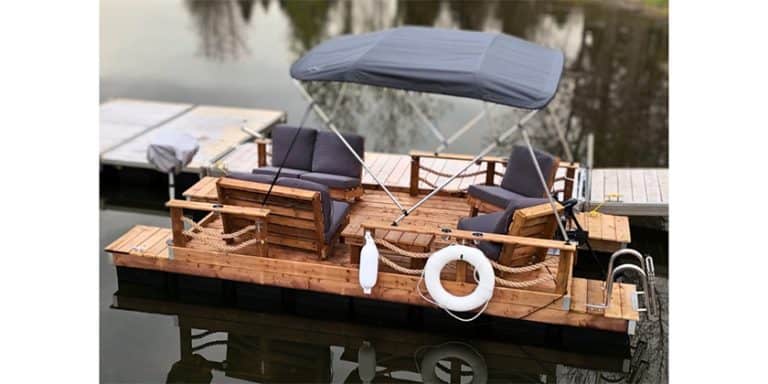Good gear: Test of The Bolt Locking Products
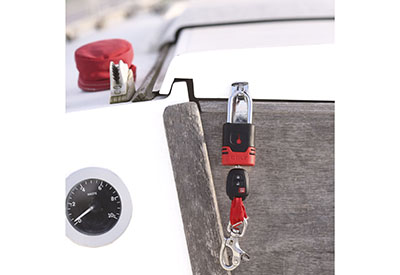
Dec 19, 2019
By Glen Konorowski
There is nothing worse for me to have too many keys on your key chain. Even if I move a few to another ring and put them in a safe spot on the boat, I have trouble remembering the secret spot where they are or worse yet, my adult children don’t put the keys back.
If you have had a boat on a trailer for a number of years you have heard stories of trailer/boat thefts. A friend of mind had his boat trailer stolen right out of his driveway while away sailing one weekend just because he couldn’t find the key for the ball lock and thought it safe on his own property.
A number of years ago I was told of a family of locks that use your vehicle key to unlock all their products allowing for fast access entry boats, lockers or trailer security. I tracked down the company and, yes, they offer plenty of solutions for your boats, trailers and general locking solutions.
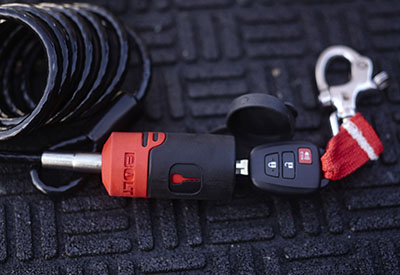 To make your Bolt lock work with your vehicles key is really simple. You insert the key and twist it around and it is keyed up to your vehicles key. You have to get the correct Bolt lock for your specific vehicle since every brand key is different.
To make your Bolt lock work with your vehicles key is really simple. You insert the key and twist it around and it is keyed up to your vehicles key. You have to get the correct Bolt lock for your specific vehicle since every brand key is different.
For the test we had use of the Receiver Lock, Pad Lock, Cable Lock, Off Vehicle Coupler Lock (locks the area your ball goes into on your trailer), Coupler Lock Hitch Pin (locks the ball in place on trailer). All the Bolt Products are protected by a good quality red and black plastic covering. Depending on the lock and its shape some locks have a slip on cover that covers the key hole. Where the plastic meets any stainless steel is a tight fit limiting the amount of water that can get into the lock mechanism.
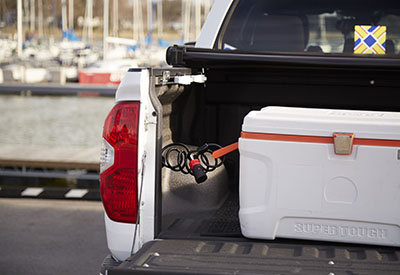 I selected the Pad Lock and Receiver Lock for the bulk of the testing as they generally get the most exposer to dust, rain, and road salt. I simulated really bad conditions this by pouring water over the locks repeatedly and then putting them in the freezer. Each time the locks were left in the freezer for a few days and then tried to open them. They worked flawlessly even when still frozen.
I selected the Pad Lock and Receiver Lock for the bulk of the testing as they generally get the most exposer to dust, rain, and road salt. I simulated really bad conditions this by pouring water over the locks repeatedly and then putting them in the freezer. Each time the locks were left in the freezer for a few days and then tried to open them. They worked flawlessly even when still frozen.
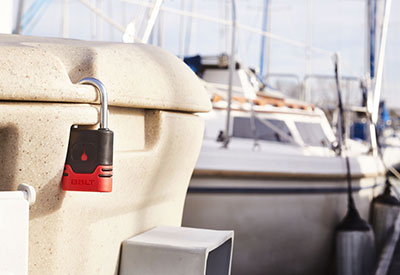 Next was the salt test and for this I used the finer restaurant packet salt. With the locks covered in water I sprinkled the salt all over the locks to simulate winter driving conditions and then froze and thawed the locks and repeated the process a few times and then tried to open them. Sure enough they both opened with ease.
Next was the salt test and for this I used the finer restaurant packet salt. With the locks covered in water I sprinkled the salt all over the locks to simulate winter driving conditions and then froze and thawed the locks and repeated the process a few times and then tried to open them. Sure enough they both opened with ease.
The last test was to leave them attached to my truck and to expose them to summer sun, rain and dust. Each lock was opened and closed every once in a while. At the same time the pin lock and Coupler lock were on a stationary trailer exposed to the spring and summer dust and rain. Again all the units worked perfectly.
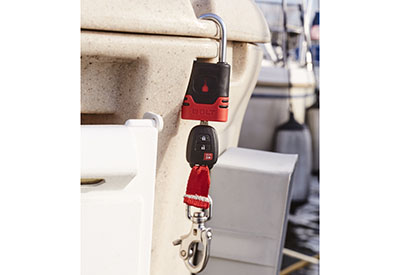
 In the past I have generally used good quality padlocks and other speciality units. For the most part they work but not as well as these.
In the past I have generally used good quality padlocks and other speciality units. For the most part they work but not as well as these.
To find out where to get a Bolt Lock go to BOLTLOCK.COM and find the dealer near you.
Glen Konorowski is a life long automotive enthusiast and automotive journalist for 35-years. He also claims to be former Commodore of the Monty Carlo Yacht Club!

